Analysis of military training: a look from entrepreneurship and the new humanism
Análisis de la formación militar: una mirada desde el emprendimiento y el nuevo humanismo
Main Article Content
Abstract
In military training, it is pertinent to identify and address the integrity of being an entrepreneur as a humanizing process that the person must recognize, after the process of intra-entrepreneurship, because it strengthens his/her capacities, allows him/her to act on a certain problem and give it a solution. It is worth noting that the men and women who belong to the Cavalry School of the Colombian national army and to other military institutions, are the people who have the responsibility of keeping the security and the defense of the country. For this reason, they must be aware of their responsibility to always generate an environment of peace. But, what allows them to comply with the above? Reacting from their military training, depending on the circumstances, from their skills and attitudes, with creativity and innovation.
Downloads
Article Details
References (SEE)
Campo, M. (s. f.). Emprendimiento en Bogotá. https://bibliotecadigital.ccb.org.co/server/api/core/bitstreams/aaa76864-e5a2-4e72-9972-22e394b89c67/content
Congreso de la República de Colombia (1991). Constitución política de Colombia. Legis.
Congreso de la República de Colombia (26 de enero de 2016). Ley 1014 de 2006, Ley de Fomento a la Cultura del Emprendimiento. D.O. No. 46.164.
Cortes, Á. (2013). Una Mirada Crítica a la Educación en el Ejército. [Tesis de grado]. Universidad Militar Nueva Granada. https://repository.unimilitar.edu.co/bitstream/handle/10654/9884/MendezCortesAlvaro2013.pd?sequence=2
Cuervo, A., Ribeiro, D. y Roig, S (2006). Entrepreneurship: conceptos, teoría y perspectiva. Fundación Bancaja. https://docplayer.es/17127891-Entrepreneurship-conceptos-teoria-y-perspectiva.html
Ejército Nacional (2017). Manual Fundamental de Referencia del Ejército MFRE 3-0 Operaciones, 5, 9. https://www.cedoe.mil.co/enio/recurso_user/doc_contenido_pagina_web/800130633_4/458762/mfe_3_0_operaciones.pdf
Escuela de caballería. (2020). La Reseña histórica de la Escuela de Caballería. http://escab.cemil.edu.co/index.php/informacion-de-interes/resena-historica/
Figueroa, C., (2016). Historia de la formación de educadores en América Latica, De la Escuela Normal a la Universidad Pedagógica. 1era. edición, Centro de investigaciones históricas sociales. Fundación Buría. https://es.scribd.com/document/423544527/HISTORIA-DE-LA-FORMACION-DE-EDUCADORES-pdf#
Gadamer, H. (1993) Verdad y método. 1era. edición. Sígueme.
Hoyos, G. (2009). Educación para un nuevo humanismo. Magis, Revista Internacional de Investigación en Educación, 2, 425-433. https://www.researchgate.net/publication/28315951_Educacion_para_un_nuevo_humanismo
Morin, E. (1996). Introducción al pensamiento complejo. Gedisa.
Sandoval, L. y Otálora, M. (2015). Desarrollo corporal y liderazgo en el proceso de formación militar. Revista Científica General José María Córdova, 13(16), 33-53. http://www.scielo.org.co/scielo.php?script=sci_arttext&pid=S1900-65862015000200003
Schumpeter, J. A. (1934). The theory of economic development. Harvard University Press.
Varela, R. (2008). Innovación empresarial. Arte y ciencia en la creación de empresas. Pearson.
Zedelman, H. (2005). Conocimiento social. El desafío de las ciencias sociales. 1era. edición. Pax México.








